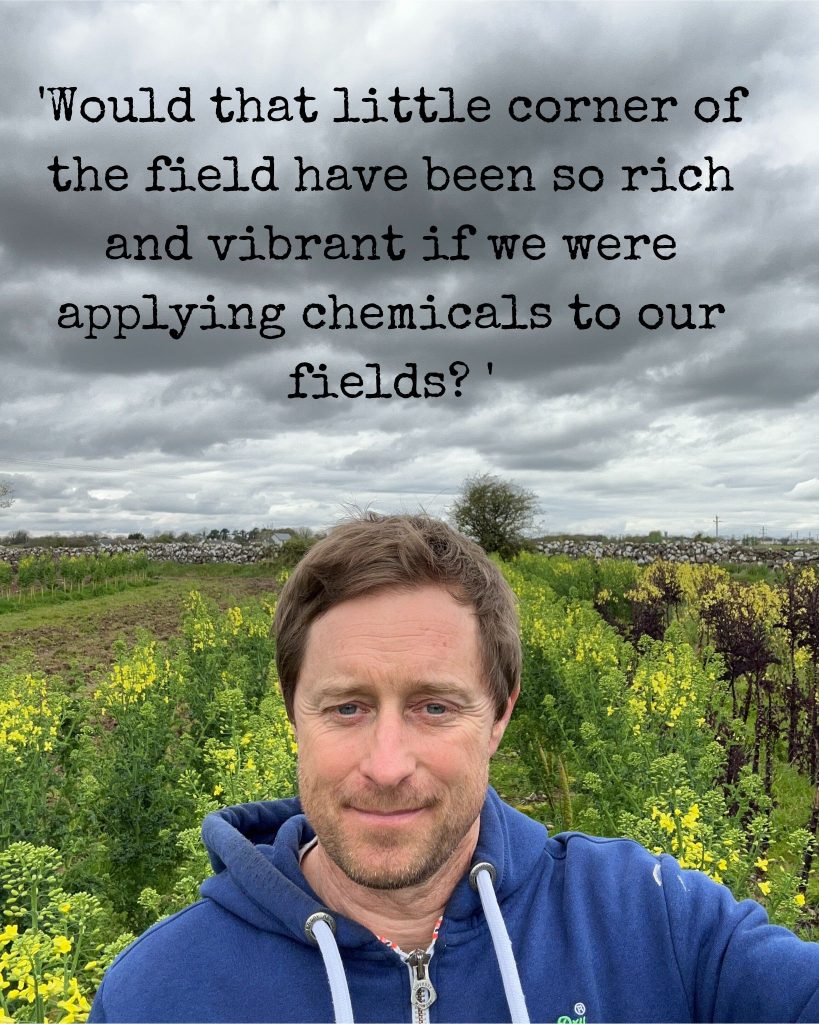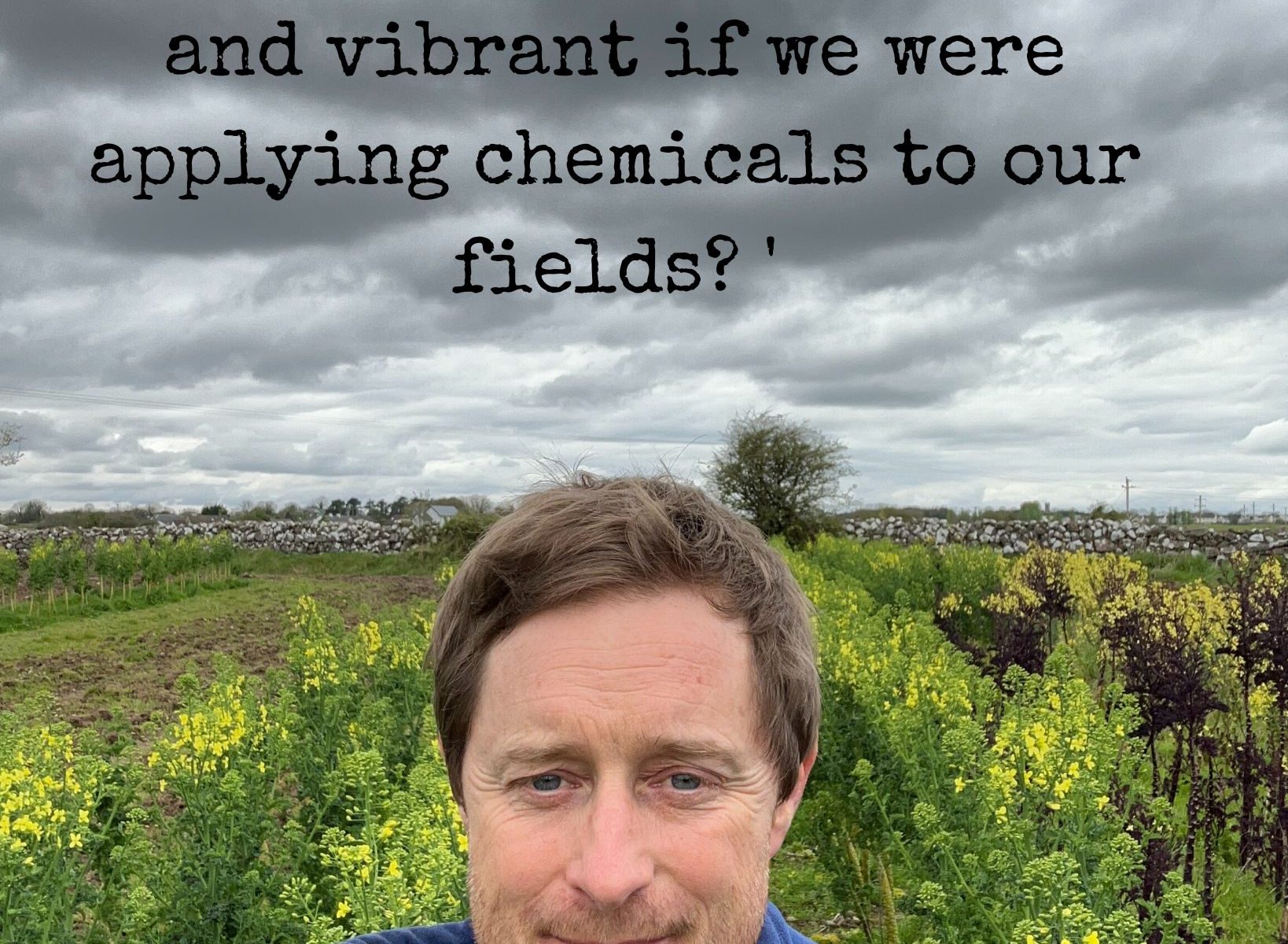We had a decision to make recently, in the grand scheme of things it may not have seemed like a very big one. But if we chose wrongly then it would have taken us away from our core value of biodiversity protection.

We had decided to put in an extra access road on our farm. There was a wall that could easily have been knocked which would make access easier and would have reduced the cost, so from a purely financial perspective it made sense to knock the wall and the growth around it. But as I was discussing this over with Emmanuel, nature gave us the nudge we needed in the right direction.
While we were standing there a giant bumble bee flew past us to nestle right into the grass and brambles at our feet, two little birds flew out of the bushes and as we continued to look we noticed a ladybird. One at first, then Emmanuel pointed out another and another there must have been 10 or more. There was a family of little red helpers there in that wall. This was in a tiny little space full with the vitality of nature.
The decision was made for us, and I was a little ashamed that I had been contemplating knocking the wall in the first place. So, the wall will stay, and we will work around it.
A small price to pay for the richness of nature that calls that little corner of the field it’s home.
This was a clear-cut decision.
When it comes to chemicals the effects can be much more difficult to spot. When chemicals are applied to fields and crops, they don’t just affect the targeted crop. There is no magic bullet, if the years spent studying chemistry thought me anything, it is that the magic bullet does not exist (The idea that a drug or chemical will only target a certain disease or pest without side effects).
So it is with chemicals that are routinely sprayed in nature. These chemicals are broad spectrum insecticides or herbicides. They do damage and they hurt biodiversity. The neonicotinoids for so long proclaimed safe for bees were as it turns out not safe for bees. Glyphosate which heralded a new in weed control has been shown to be a ‘probable carcinogen’ and it is everywhere in our environment now.
These chemicals are the unseen freebies we get with our food, and they hurt our health. But even more importantly they hurt our land and the life we share this planet with too.
Would that little corner of the field have been so rich and vibrant if we were applying chemicals to our fields? Absolutely not. So, with your support for our business you are supporting many little corners of land right across Ireland, whether it be here on our farm, or Joe Kelly’s farm in Mayo, or Padraigh Fahy’s farm in Galway, or Vincent Grace’s farm in Kilkenny, or Roy Lyttle’s farm in Antrim or Richard Galvin’s farm in Waterford or Cameron’s farm in Kildare or Philip Dreaper’s farm in Offaly and many more.
We all share the same belief that there is a better way to produce food that there is a safer and happier way to farm.
Thank you for your support, and for supporting our mission:
“Better for you, better for the planet”
Kenneth

